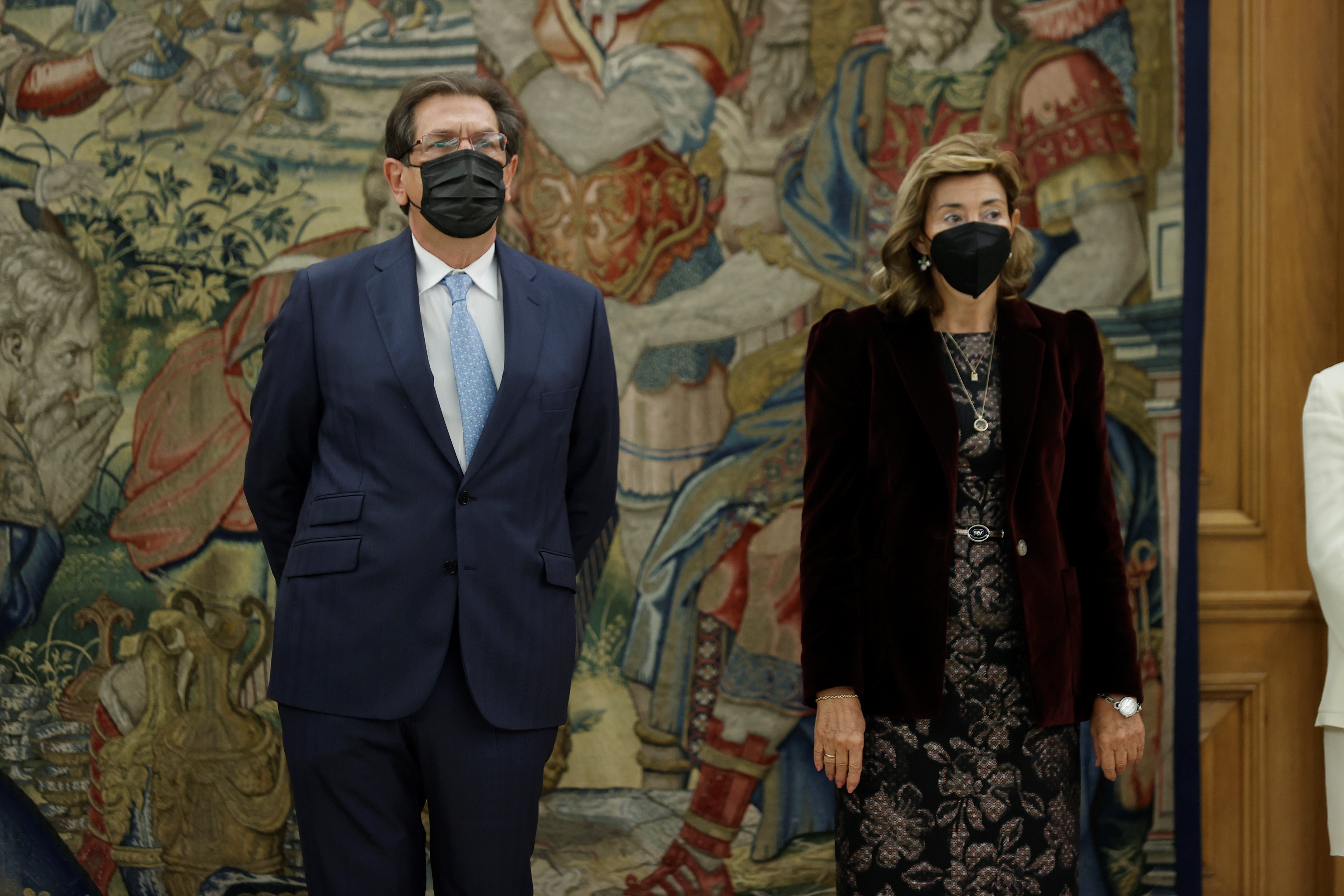Spain's Constitutional Court has "unanimously" rejected the numerous appeals for the recusal of two of its new judges, Concepción Espejel and Enrique Arnaldo, which were presented by the Catalan pro-independence leaders convicted by the Supreme Court, as well as by those in exile. A statement issued this Wednesday states that the full court has decided to reject the 33 objections raised and defends the "legitimacy" of both judges, who were chosen by the three powers of the Spanish state: legislative, executive and judicial.
Former Catalan president Carles Puigdemont and former vice president Oriol Junqueras, along with other defendants, denounced Espejel's close relationship with Spain's Popular Party (PP) and Arnaldo's statements against the Catalan independence movement, arguing that these aspects of their curricula had to disqualify the judges from taking part in the consideration of constitutional appeals against the pro-independence leaders' convictions or indictments for sedition. The full text of the court's ruling will be released in the coming days, according to court sources.
In response to the avalanche of recusal appeals, the constitutional organ specifically highlighted the "legitimacy of origin of the Court's judges, chosen by the three powers of the Spanish state", a fact - according to the statement - that "it is projected in the plurality of legal perspectives that come together in the deliberations and decisions of the collegiate body, an expression of the idea of political pluralism”.
The Spanish court's resolution notes that "the safeguarding of the exercise of constitutional jurisdiction both demands and justifies that, to issue this resolution, none of the judges present should be excluded from forming part of the plenary" because "all the judges are called in the defence of the court's jurisdiction, without it being necessary to make distinctions between those who are challenged and those who abstained from taking part."
According to today's statement, the Constitutional Court states that it is not possible to exclude the two challenged judges because the court would then be left without the quorum of eight magistrates required to resolve cases. The court plenary also rejects the grounds for recusal based on "mere statements unsupported by specific facts." And, it rules out "that a legitimate doubt over impartiality could be substantiated by jurisdictional externalization of a legal criterion in resolving a process or in disagreeing with the resolution through a dissenting vote." It states that "not only the Constitutional Court but also the rest of the courts must be composed of judges who do not have an empty mind on the legal matters under their consideration."
Calls for recusal
At the beginning of December, a series of requests for recusal were filed against the two judges proposed by the PP as part of the Constitutional Court's long-overdue renewal. The first to be made public was the one presented by ERC leader Oriol Junqueras, and party colleagues Raül Romeva and Dolors Bassa. Later, the president in exile Carles Puigdemont, along with Toni Comín, Clara Ponsatí and Lluís Puig presented another. The last appeal that is known was that of former Catalan president Quim Torra. All these appeals assert the apparent lack of impartiality of Arnaldo and Espejel due to their affinity with the Popular Party, as well as taking positions in public against the Catalan independence process and its leaders.
The submission presented by lawyer Gonzalo Boye on behalf of Puigdemont and the exiled leaders underlines the "well-known interest" expressed by both of the new judges in the imprisonment of Puigdemont, Comín, Ponsatí and Puig. The defence lawyer's argument presents numerous examples of this lack of impartiality: in the case of Arnaldo, it relates how in his recently published book Tiempo de Constitución. Límites, controles y contrapesos del poder, the author repeatedly positions himself in favour of the prosecution's theses in the Supreme Court's investigation and trial of the independence process leaders and describes those who criticized the rebellion charges made by the prosecution - and subsequently rejected by the court - as "sick with sectarianism". In the same vein, Junqueras, Romeva and Bassa argue in their brief recusal appeal that Arnaldo and Espejel's public statements, as well as their personal and ideological affinities, "denote a clear predisposition or prejudice in favour of the theses defended by the prosecutions and, on the other hand, unfavourable to the approaches of the defence".
The Spanish Constitutional Court is made up of twelve judges and, according to the law, in order to adopt any kind of agreement, the presence is required of at least two thirds of the members who "make it up at any time". The fact is, at present one judge, Alfredo Montoya, is on sick leave as a result of a stroke he suffered in August, so that there are now eleven active members of the Constitutional Court. If the recusals of Arnaldo and Espejel were accepted, and account taken of the two other judges who have already been recused in the pro-independence cases, there would only be seven judges able to decide on the independence leaders' cases, a quorum that is below the two thirds that the law determines. That is why the plenary session rejected it.
Main image, new Spanish Constitutional Court judges Enrique Arnaldo and Concepción Espejel / Efe

